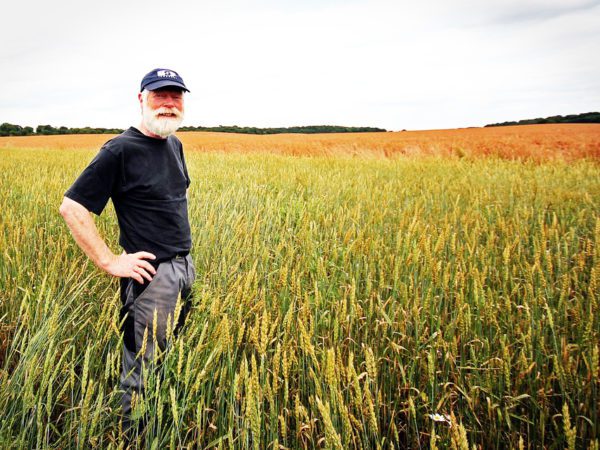
Stock Photo to Protect Client Identity
Cases or matters referenced do not represent the law firm’s entire record. Each case is unique and must be evaluated on its own merits. The outcome of a particular case cannot be predicated upon a lawyer’s or law firm’s past results.
“Here in this area, you don’t buy farm land. It goes down through the children.”
If you were to ask Carl Fischer* where he was born, you wouldn’t hear the name of a town or hospital. All he would have to do is point over at the old farm house that sits some yards away from the home he lives in now.
“The old house that I was raised up in…” began Carl, “in 1942 when I was born, the doctors came out and delivered the children back then.”
The farm had been in Carl’s family since the 1800s. Back then, it was nearly 2,000 acres of tobacco, corn, and cotton. Over time, the original farm broke up and changed names as Carl’s ancestors married, passed, and left pieces of it to their own kids. Carl spent his whole life on the farm, and when his parents passed, he moved into the home they built.
“I knew the road was coming, but I didn’t know which direction.”
Like many of his neighbors, Carl attended the community meetings hosted by the North Carolina Department of Transportation (NCDOT) regarding the proposed four-lane highway project. Yet when the maps of the proposed road were presented at the hearings, it didn’t look like it was going to affect him.
Sometime later, the NCDOT knocked on Carl’s door and told him that the four-lane highway was going to run right across his bottom field, cutting it clear in half.
“I was very upset,” Carl recalled. “Some of my land is the top tobacco land in North Carolina. But the DOT said there’s no road frontage. They pay you what they want and it’s a said and done.”
“You wonder: do they understand?”
Carl and his son tried to talk to NCDOT officials, but felt like they didn’t understand. When he finally studied the plans the officials left with him, he saw that the road would be within 15 to 20 yards of his front door!
He knew he had to do something. “A friend of mine said; you need to get a lawyer.” Carl explains, “So I called Stan Abrams and talked to him.”
“They’ve got a set plan.”
The fact that Abrams and his partner, Jason Campbell, used to work on behalf of the NCDOT before joining the North Carolina Eminent Domain Law Firm, won Carl’s confidence.
Ultimately, Abrams, Campbell, and their team were able to offer proof to the state that it was undervaluing Carl’s condemned land, and that the remaining land was being damaged by the road construction far more than the state had estimated. In total, Abrams and Campbell were able to convince the NCDOT to pay Carl nearly 80% more for his land.
*Names have been changed to protect privacy.